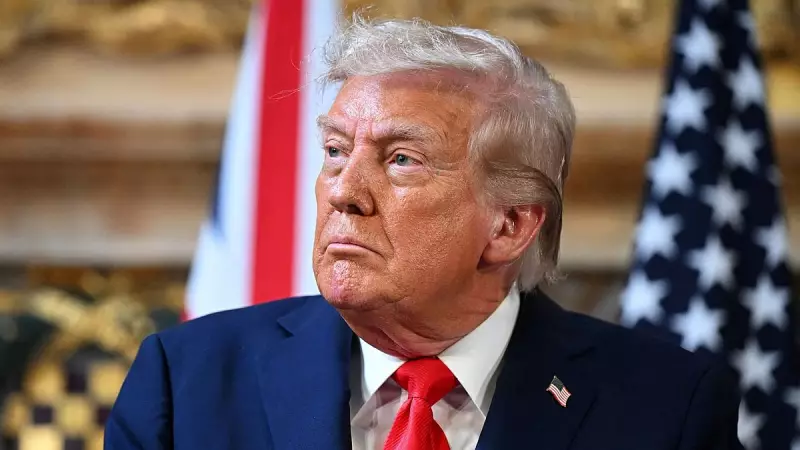
In a characteristically blunt statement that has reverberated across international diplomatic circles, former US President Donald Trump has delivered a stark ultimatum to Hamas, presenting the militant group with two clear options regarding their weapons arsenal.
The Trump Doctrine: A Binary Choice
During recent public remarks, the former commander-in-chief articulated his position with trademark directness. "Hamas must disarm or be disarmed," Trump declared, adding the ominous qualifier, "perhaps violently." This formulation represents a significant escalation in rhetoric from a leading figure who remains deeply influential in American politics.
Context and Timing of the Statement
The timing of Trump's pronouncement is particularly significant, coming during an ongoing period of heightened tensions in the Gaza conflict. His comments appear designed to position himself as taking a harder line than current administration approaches, potentially signaling his foreign policy priorities should he return to power.
Key Implications of Trump's Position
- Voluntary disarmament: The preferred outcome where Hamas surrenders weapons without coercion
- Forced disarmament: The alternative scenario involving military intervention
- Regional stability concerns: How such an approach might affect broader Middle East dynamics
- Political messaging: The domestic and international audience for these remarks
Historical Precedent and Future Scenarios
This isn't the first time Trump has advocated for decisive military solutions to complex geopolitical problems. His administration previously brokered the Abraham Accords, which normalized relations between Israel and several Arab nations. However, his latest comments suggest an even more confrontational approach toward Palestinian militant groups.
Political analysts are carefully examining how this position might play with various constituencies, from pro-Israel voters to those concerned about escalating violence in the region. The statement also raises questions about how a potential future Trump administration would approach the Israeli-Palestinian conflict compared to current diplomatic efforts.
International Reaction and Diplomatic Fallout
While formal responses from world governments are still emerging, initial reactions suggest Trump's comments have complicated an already delicate diplomatic landscape. Some allies express concern about the potential for escalated conflict, while others see it as a necessary hardening against terrorist organizations.
The former president's unambiguous language leaves little room for interpretation, setting clear markers for how he believes the United States should approach one of the world's most intractable conflicts. As the political situation continues to evolve, these remarks will likely factor significantly into ongoing debates about America's role in Middle East peace processes.





